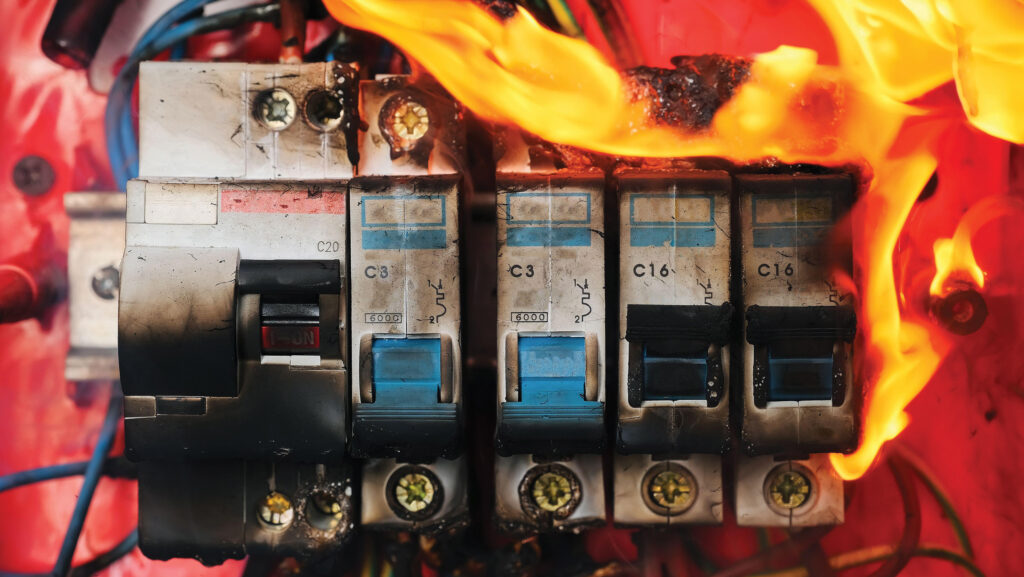Insurance implications for renewable energy projects
 © Serhii Suravikin/Alamy Stock Photo
© Serhii Suravikin/Alamy Stock Photo Farmers planning renewable energy projects may fail to get them insured if they do not consult with their broker or insurer in good time.
Ideally, that should be in the planning stage and well before any quotes to supply or install equipment are accepted, says Nigel Wellings, a director with broker Acres Insurance.
Renewable energy generation and storage risks won’t be covered by standard farm insurance, but careful planning, siting and choice of materials can reduce the risk and the cost of cover, he says.
See also: Readers’ questions answered by Farmers Weekly Business Clinic experts
Taking this route can mean the difference between getting cover and not.
“If insurers are consulted at an early stage, then possible changes can be made to installations plans to minimise risk, resulting, often, in far less stringent terms.”
The past couple of years have seen an increasing reluctance to cover renewable installations, leaving the rest of the farm business exposed to higher risk and uninsured if renewable kit is installed without cover.
“The conditions imposed on the client can vary hugely from insurer to insurer,” says Nigel.
“One of the problems is that the cover generally needs to be done with the existing farm or house insurer.
“It generally does not justify moving all the insurances just to accommodate the renewable energy enterprise. You are then at the mercy of your existing insurer.”
Insurers cautious
Growing caution on the part of insurers stems from a number of fires originating from a renewable energy source, which have then destroyed surrounding buildings.
“For example, seven or eight years ago, we had a client with solar panels installed (no battery storage). There was a fault in the related electrics, which were in a stone barn.
“The resulting fire destroyed the stone barn and other outbuildings, leading to a claim of about £800,000.
“Forensic investigators determined the cause of the fire to be an electrical fault concerning the solar panels.
“The electrics were new four years previously. No costs could be recovered from the company that had installed the electrics, as they had since gone out of business.”
In the boom years, which saw extensive government support for renewable energy, installations were often carried out by firms that are now no longer in business, so the situation above was not unusual.
This makes it all the more important to be sure you are dealing with a qualified, sound and reputable business, which has the experience and ability to carry out the work, says Nigel.
“Maintenance is also so important, it has to be spot on and documented so you can demonstrate that all requirements, including those in the warranty, have been complied with.
“Servicing should be done within the specified time scales. Don’t let the date run over.”
Biomass boilers
Fire-related claims are the most common with biomass boilers. Again, it’s a case of commonsense in the choice of materials, practices and siting, says Nigel.
“We’ve seen claims caused by the fire in the boiler itself burning back into the intake hopper.
“You need a clear division from the feed hopper to the boiler, for example a wall faced with fire-retardant plasterboard, and steel used where possible rather than timber.
“There are also auto-drenching devices which can help reduce risk and damage. Thought should also be given to boiler chimneys, in terms of heat protection for any materials they come into contact with.”
Insurance tips for renewables
- Inform insurer/broker in good time so that risk reduction advice can be provided –careful siting of equipment in relation to other buildings, and of materials used, can make the difference between “yes” and “no” on insurance cover, as well as generally reducing business risk
- Make sure installers and service personnel are competent to do the job – ask for proof of this, such as electrical certificates/qualifications
- Once equipment is installed, use a commonsense approach to daily work – for example, don’t park tractors and other vehicles/equipment near to biomass boilers or other renewable installations
- Observe service and maintenance requirements for renewable installations.
Had a problem?
This article was prompted by a reader contacting Farmers Weekly about their experience, having retrofitted battery storage to a rooftop solar array in a farmyard consisting mainly of stone buildings.
Their insurer would only offer cover for this if the reader accepted a 10% of claim fire excess, with a minimum £10,000 excess. As a result, they are looking for a new insurer.
Get in touch if you have had a renewable energy or other farm insurance issue. Contact suzie.horne@markallengroup.com
